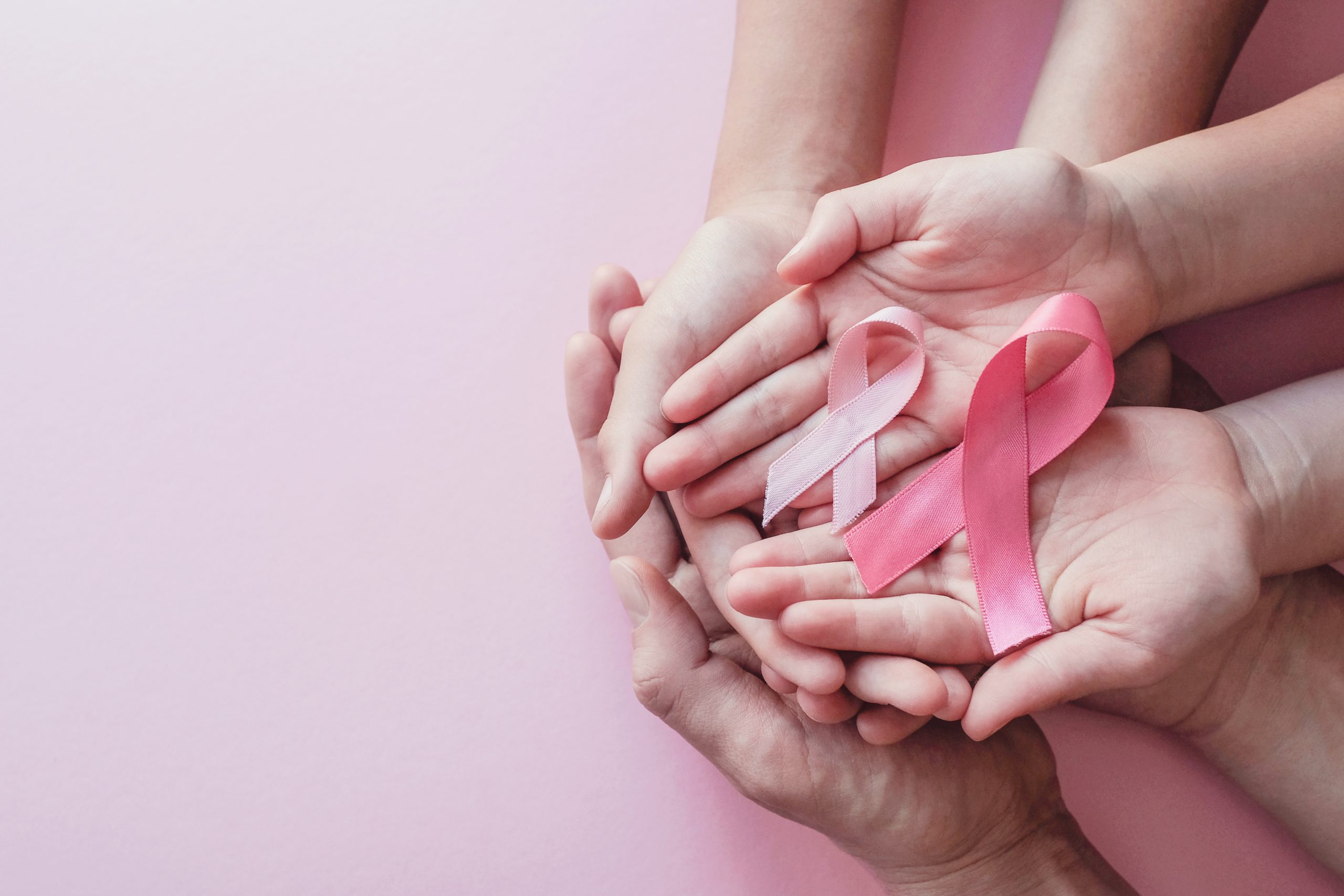DISCLAIMER: The following post outlines the writer’s personal experience with breast health. It is not intended to act as medical advice. As always, please consult your doctor with any questions about breast health.
Breast Cancer Awareness Month is a cause that is close to my heart. There is a 1 in 8 chance that a woman will develop breast cancer in her lifetime, according to the CDC. Each one of those women has a life and a family. Several years ago, my grandma was one of them. She and several of my aunts battled breast cancer, and her mother, my great-grandmother, died from breast cancer.
Breast cancer awareness has been part of my life since I was young, due to this prevalence in my family. I watched my grandma go through the struggles of chemotherapy, losing her hair, and getting a mastectomy. Cancer takes a huge toll on a person and their family, but I was inspired by my grandmother’s resilience in the face of this terrible disease.
In her honor, I want to share some general information about breast cancer awareness and early detection, because these things are key to better outcomes for those who are affected.
Breast Self-Exam
Performing a breast self-exam is one of the easiest and most accessible ways to potentially catch a sign of breast cancer early on. You can do a breast self-exam daily if you want to, but the National Breast Cancer Foundation recommends performing a breast self-exam at least once a month.
A quick online search can provide helpful information on how to properly perform a breast self-exam, or you can ask your doctor for best practices.
Genetic Testing
My great-grandmother died from breast cancer, and my grandma and two of her sisters were also diagnosed. Because of the likelihood in her family, my grandma chose to undergo genetic testing. Genetic testing allows you to find out if you potentially have a gene that makes you more prone to having breast cancer.
If breast cancer does not run in your family, this option might not make sense. If you think this is something you are interested in, you can talk with your doctor to find out if genetic testing would be beneficial for you.
Mammograms
Mammograms can be intimidating, but it’s recommended that women over the age of 40 have a mammogram at least every two years. Women younger than 40 may also need a mammogram, depending on their risk factors. You can discuss when you need a mammogram with your doctor.
Mammograms are x-rays that are able to better detect abnormalities than a breast self-exam, and sometimes can find a lump before it can be felt. While mammograms may be uncomfortable, they are critical for early detection of a potential cancer. If a lump or abnormality is discovered during a mammogram, further testing is done to determine if it is cancerous.
Regular Check-Ups
Breast cancer prevention and awareness can be discussed with your primary care provider or OBGYN during your yearly appointment. You can discuss your personal risk factors and determine if further action should be taken based on your situation. Your doctor may also perform a routine breast exam at that time.
Your yearly checkup is a great opportunity to advocate for your health in general, but also a wonderful chance to ask questions about breast cancer and discuss what prevention or awareness methods may be best for you.
Be Vocal + Spread Awareness
Breast self-exams, mammograms, and talking with your doctor are all extremely important and necessary measures to detect breast cancer early, and hopefully allow for better outcomes. However, we all know that as moms, remembering to take care of ourselves can be difficult, and things that don’t feel “urgent” can sometimes slip under the radar.
This is why it’s so incredibly important to spread the word and normalize breast cancer awareness. Check in with your mom, sister, friend, or aunt. Talk about your own journey and the measures that you take to stay aware. Normalize breast cancer awareness, and be open to talking about it. Your support and encouragement could save someone’s life.











